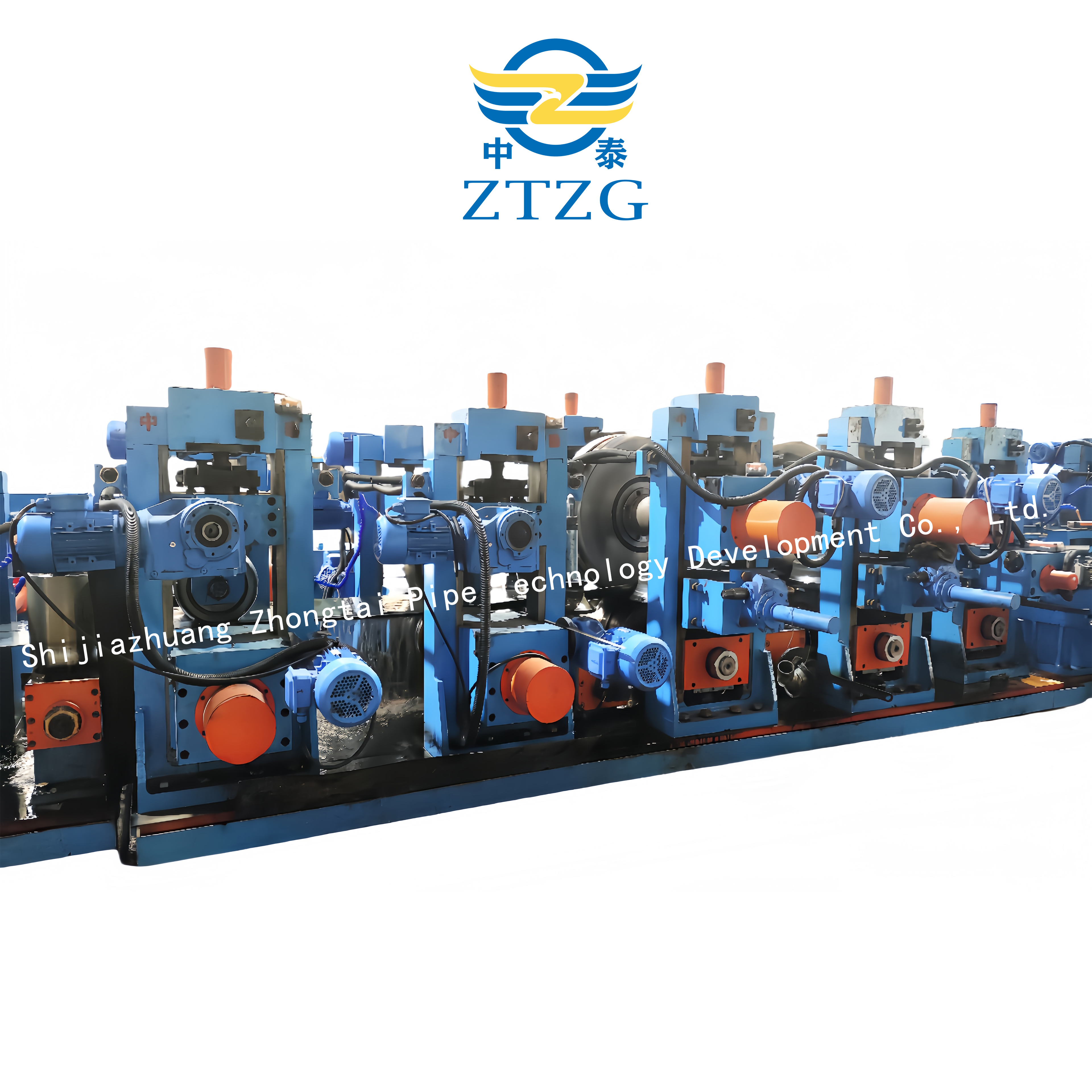Modern ERW pipe mills are equipped with advanced technology to ensure high productivity and quality. They include components such as an uncoiler for feeding the steel strip, a leveling machine to ensure flatness, shearing and butt-welding units for joining the strip ends, an accumulator to manage strip tension, a forming and sizing mill to shape the pipe, a flying cut-off unit for cutting the pipe to desired lengths, and a packing machine for final product packaging.
The ERW Pipe mill is a specialized facility used in the manufacturing of pipes through a process that involves the application of high-frequency electrical currents. This method is primarily employed for the production of longitudinally welded pipes from coils of steel strip. The process starts with uncoiling the steel strip and passing it through a series of rollers that gradually form the strip into a cylindrical shape. As the strip edges are heated by the electrical current, they are pressed together to form a welded seam. The heat generated by the resistance to the electric current melts the edges of the steel strip, which then fuses together without the need for additional filler material.
ERW pipes are known for their uniformity in wall thickness and diameter, which is achieved through precise control of the welding process parameters. This manufacturing method is preferred for its efficiency and cost-effectiveness, making it suitable for producing pipes in a wide range of sizes and shapes. ERW pipes are widely used in industries such as oil and gas, structural construction, automotive, water and sewage treatment, and agricultural irrigation.
Overall, the ERW pipe mill plays a crucial role in meeting the global demand for welded steel pipes by providing a reliable and efficient method of production that meets stringent industry standards for quality and performance.
Post time: Aug-14-2024












